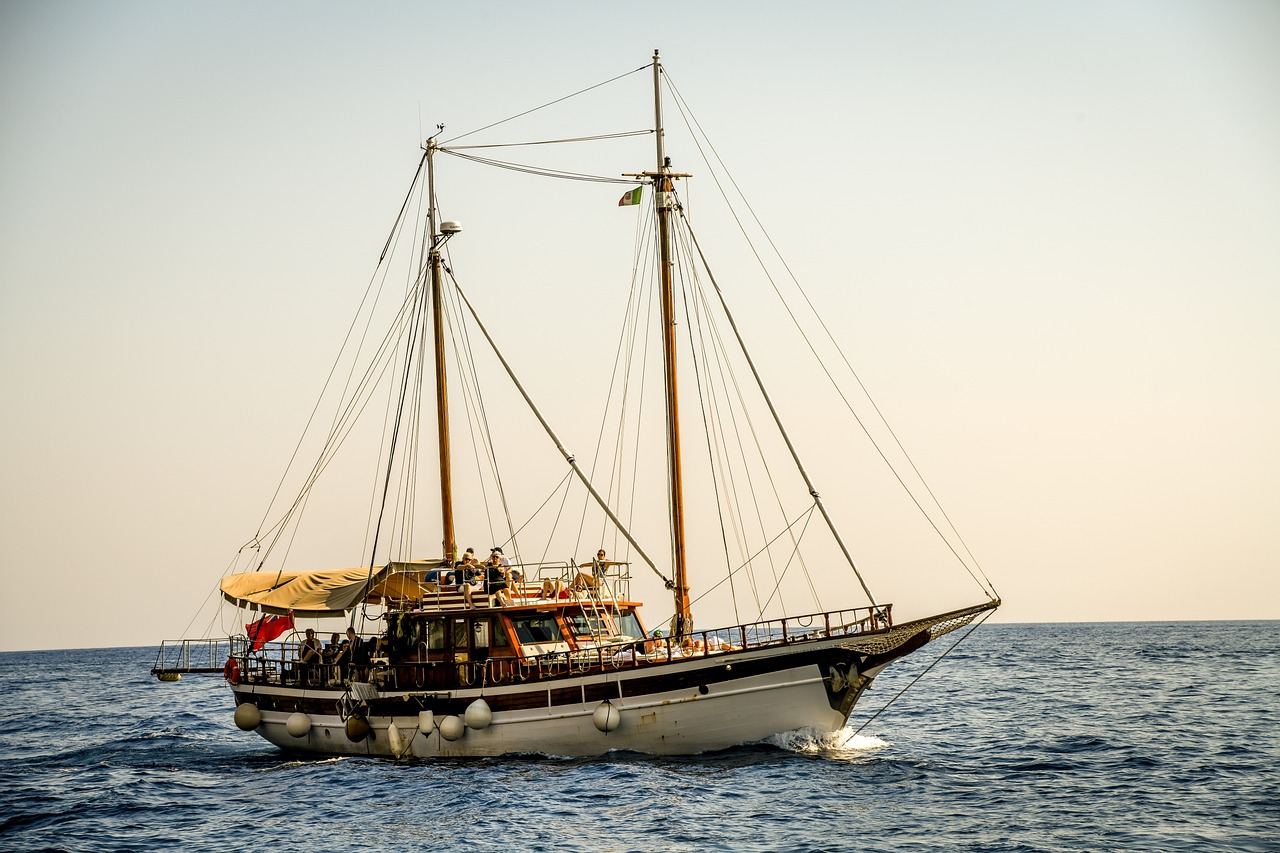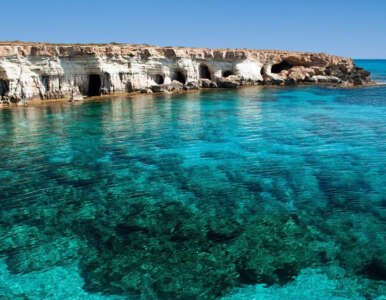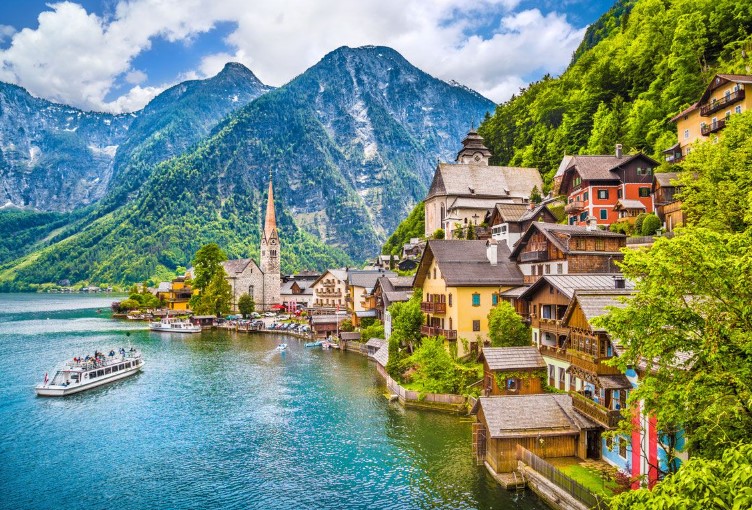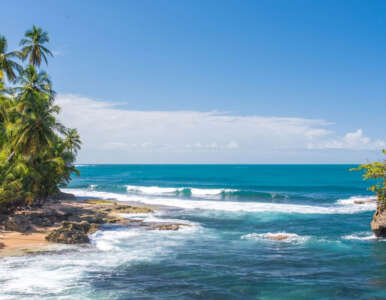If you’re looking for a beautiful, sunny vacation destination, Cyprus is the perfect place for you. Located in the eastern Mediterranean, this small island offers visitors breathtaking scenery, delicious food, and a unique cultural experience.
Despite its many attractions, many people struggle to locate Cyprus on a map or have little knowledge about this island nation. That’s where we come in! In this article, we will provide you with a comprehensive guide to help you locate Cyprus and gain a deeper understanding of what the island has to offer. Get ready to discover this hidden gem!
Geography of Cyprus
Cyprus is a beautiful island nation located in the eastern Mediterranean Sea, south of Turkey and west of Syria and Lebanon. The island has an area of 9,251 square kilometers, making it the third-largest in the Mediterranean region after Sicily and Sardinia.
Cyprus is divided into six districts: Famagusta, Kyrenia, Larnaca, Limassol, Nicosia, and Paphos, each offering its own unique attractions and experiences. The capital city of Nicosia is located in the center of the island and is known for its rich history and culture.
One of the most striking features of Cyprus is its varied geography. The Troodos Mountains, located towards the center of the island, offer stunning views of rugged peaks and crystal-clear streams. The Akamas Peninsula in the northwest offers equally impressive natural beauty, with rugged coastline and azure blue waters.
In addition, the island is home to beautiful beaches, ranging from golden sandy shores to rocky coves. Whether you’re looking for adventure or relaxation, Cyprus is a must-visit destination.
History and Culture of Cyprus
Cyprus is an island with a long and fascinating history that spans over 10,000 years. The island has been home to several civilizations throughout history, including the Greeks, Romans, Byzantines, and Ottomans. Each of these civilizations has left its mark on the island, from the ancient ruins and temples to the medieval castles and churches.
Today, Cyprus is a melting pot of cultures and traditions, with influences from both the East and the West. The island’s culture is a unique blend of ancient traditions and modern influences, making it a fascinating place to explore. From the lively festivals and celebrations to the delicious cuisine and traditional music, Cyprus has something for everyone.
If you are interested in learning more about the island’s history and culture, there are several museums and historical sites you can visit. The Cyprus Museum in Nicosia is a great place to start, as it houses many of the island’s ancient artifacts. Other must-visit sites include the Byzantine churches in the Troodos Mountains and the medieval castle in Limassol.
In addition to its rich history, Cyprus is also known for its vibrant art scene, with many galleries and exhibitions showcasing local artists’ work. Whether you’re interested in ancient history or modern art, Cyprus is a cultural destination that won’t disappoint.
Ancient Sites in Cyprus
When it comes to ancient sites, Cyprus has plenty to offer. These sites are a testament to the island’s rich history and culture and are a must-visit for any traveler. Some of the most popular ancient sites in Cyprus include the ancient city of Kourion, which is located on a hilltop overlooking the sea. The city dates back to the 12th century BC and features well-preserved mosaics, a Roman amphitheater, and a public bathhouse.
The Tombs of the Kings are another popular attraction, located just outside the city of Paphos. These tombs date back to the Hellenistic period and are carved into solid rock. The tombs feature impressive Doric columns and beautiful frescoes depicting scenes of daily life.
Finally, don’t miss the ancient theater of Kato Paphos, which dates back to the 2nd century AD. This well-preserved theater features stunning views of the sea and is a popular venue for concerts and events. So, be sure to add these ancient sites to your Cyprus itinerary for an unforgettable trip!
The Modern History of Cyprus
The modern history of Cyprus is just as fascinating as its ancient past. Over the centuries, the island has been under the rule of various empires, including the Lusignans, Venetians, Ottomans, and the British Empire, which held control of the island until 1960.
In 1960, Cyprus gained independence from Britain, but the island was split in 1974 after a Turkish invasion in response to a brief Greek-inspired coup. Today, the island is divided into two parts, with the southern two-thirds being the internationally recognized Republic of Cyprus, while the northern one-third is administered by the self-declared Turkish Republic of Northern Cyprus.
Despite the island’s division, Cyprus has managed to maintain its unique identity and charm. Visitors are welcomed with open arms, and both sides offer different but equally fascinating cultures and traditions to explore.
Cyprus Today
Cyprus is a popular tourist destination, because it is known for its stunning beaches, crystal-clear waters and warm climate. It attracts visitors from all around the globe, and its tourism industry is thriving, providing various activities and sights for every type of traveler. Adventure seekers can enjoy hiking in Troodos Mountains or diving in the sea caves. Those who want to relax and unwind can enjoy the beautiful beaches and indulge in luxurious spa treatments. Cyprus is also a place to explore the rich cultural heritage and history of the island with numerous museums and ancient sites. In addition, the delicious traditional Cypriot cuisine and world-known wine industry make it a great culinary destination.
Cuisine in Cyprus
When it comes to cuisine, Cyprus has much to offer. The island’s culinary tradition is heavily influenced by its history and geography. Traditional Cypriot cuisine often involves fresh ingredients such as vegetables, meats, and seafood, and is known for its unique flavors and aromas.
One of the most popular dishes in Cyprus is souvlaki, which consists of skewered and grilled meats such as pork, chicken, or lamb. Another must-try dish is halloumi cheese, a salty and savory cheese that is often grilled or fried and served as a side dish. For those looking for a more substantial meal, the traditional Cypriot meze is a feast that consists of a variety of small dishes such as hummus, tzatziki, olives, and grilled meats and vegetables.
Overall, Cyprus offers a culinary experience that is rich in flavor and history, with traditional dishes that are sure to delight any food lover.
Natural Beauty in Cyprus
When it comes to natural beauty, Cyprus is an absolute heaven on earth. The island is known for its stunning landscapes, from the soaring Troodos Mountains to the rugged Akamas Peninsula. Visitors can explore the lush forests, cascading waterfalls, and scenic hiking trails that offer breathtaking views of the island’s pristine beauty.
Cyprus is also home to some of the most beautiful beaches in the world. The island’s coastline boasts golden sandy shores and crystal-clear waters that are perfect for swimming, sunbathing, and water sports. There are also quieter rocky coves and hidden beaches that offer a more secluded and tranquil experience.
One of the most popular natural landmarks in Cyprus is the Troodos Mountains. The range is full of picturesque villages, monasteries, and churches that are surrounded by lush forests and offer a glimpse into traditional Cyprus life. Visitors can trek to the peak of Mount Olympus, the highest point on the island, or explore the many scenic trails that wind through the mountain range.
FAQs about Cyprus
Cyprus is located in the eastern Mediterranean Sea, south of Turkey and west of Syria and Lebanon. The island is situated at the crossroads of Europe, Asia, and Africa, making it easily accessible from various regions. The island’s strategic location has made it a desirable destination for travelers and a hub for international trade and commerce.
The capital of Cyprus is Nicosia, located in the center of the island. Nicosia is the largest city in Cyprus and is a hub of political, cultural, and economic activity. The city has a rich history and is home to many historical, cultural, and architectural landmarks, including the medieval walls of the Old City and the iconic Famagusta Gate.
The currency used in Cyprus is the Euro. The country adopted the Euro as its official currency in 2008, replacing the Cypriot pound. This has made it easier for travelers from the Eurozone to visit Cyprus, as they no longer need to exchange their currency when they arrive.
The official languages of Cyprus are Greek and Turkish. Greek is the most widely spoken language in Cyprus, with over 78% of the population speaking it as their native language. Turkish is the second most commonly spoken language, spoken by around 18% of the population. English is also widely spoken and is considered the business language of the island. This makes it easy for travelers to communicate with locals and navigate their way around the island.
What is the capital of Cyprus?
The capital of Cyprus is Nicosia, which is located in the center of the island. Nicosia is one of the oldest continuously inhabited cities in the world, with a history dating back to the Bronze Age. The city is divided into two parts, with the southern part being the capital of the Republic of Cyprus, and the northern part being the capital of the Turkish Republic of Northern Cyprus. Nicosia has a rich cultural heritage and is home to many historic landmarks, such as the Nicosia Municipal Theatre, the Cyprus Museum, and the Famagusta Gate.
Nicosia has a diverse economy, with industries ranging from agriculture and tourism to finance and technology. The city has a thriving nightlife, with many bars and restaurants offering traditional Cypriot cuisine and live music. Visitors to Nicosia can also explore the winding streets of the old town, which are lined with beautiful historic buildings and picturesque cafes.
- Cyprus Population: The population of Nicosia is approximately 310,000 people, making it the largest city in Cyprus.
- Climate in Nicosia: Nicosia has a Mediterranean climate, with hot, dry summers and mild, wet winters.
- Transportation in Nicosia: The city has a well-developed public transportation system, including buses and taxis. Visitors can also rent cars and bicycles to explore the city.
Overall, Nicosia is a vibrant and historic city that is well worth a visit. Whether you’re interested in history, culture, or just enjoying the Mediterranean climate, Nicosia has something to offer everyone.
What is the currency used in Cyprus?
Cyprus has been a member of the European Union since 2004 and adopted the Euro as its official currency in 2008. Prior to that, the Cypriot Pound was used as the national currency, but it was replaced by the Euro as part of the country’s commitment to harmonize its financial policies with the rest of the EU.
The Euro is the second most traded currency in the world after the US Dollar, which means that visitors to Cyprus can enjoy the convenience of having a widely accepted currency. ATMs and currency exchange bureaus are widely available throughout the island, making it easy for visitors to obtain Euro cash for their transactions. In addition, many businesses in Cyprus also accept credit cards for payment.
What is the official language of Cyprus?
Cyprus has a unique history that has influenced its language. The official languages of Cyprus are Greek and Turkish, with Greek being the more widely spoken language. Greek is the native language of around 78% of the population, while Turkish is the native language of around 18% of the population. English is widely spoken and understood in Cyprus, especially within the tourism industry and business sector. In addition to Greek and Turkish, a dialect of Armenian is also spoken by a small community in Cyprus.
Conclusion
If you’re looking for a truly unique vacation destination, Cyprus is the perfect place to visit. This island nation boasts stunning landscapes, world-class cuisine, and a rich cultural heritage that will leave you breathless. From the Troodos Mountains to the beautiful beaches, Cyprus has something for everyone. No matter what your interests are, you’re sure to find something worth exploring on this beautiful island. We hope that our guide has helped you locate Cyprus and gain a deeper understanding of what this beautiful island has to offer. Don’t hesitate to plan your trip to Cyprus and discover all the wonders this hidden gem has in store!





